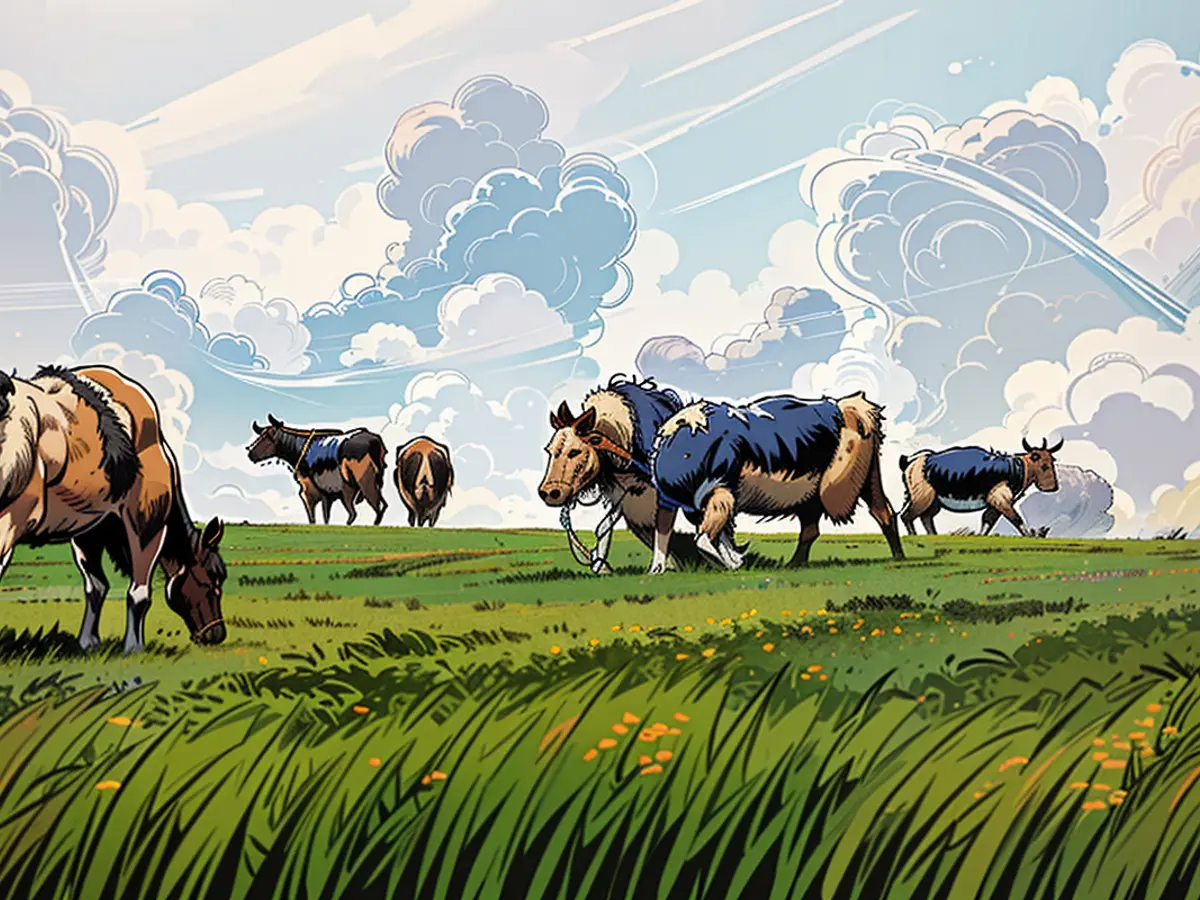Denmark Proposes Implementing a Climate Tax on Agricultural Industry
In Denmark, the agricultural sector accounts for a significant 35% of greenhouse gas emissions, making it a key contributor to the country's carbon footprint. Unlike other sectors, there's been no tax imposed on agriculture so far. However, this is about to change for the dairy and pig farming industries.
Denmark aspires to be the trailblazer in implementing a climate tax for pig farms and dairy farms, with Finance Minister Jeppe Bruus stating, "Other nations look up to us for encouragement to do the same." A recommendation for taxing the greenhouse gas emissions of the industry had been made by an expert commission. As a major exporter of meat and dairy products, Denmark aims to cut emissions by a staggering 70% compared to 1990 levels by 2030, with Germany targeting only 65%.
In Germany, taxes on CO2 emissions are now commonplace across sectors like transport, heating, energy, and industry. Agriculture, responsible for around 8% of Germany's total emissions, remains untaxed. In Denmark, it's 35%. New Zealand, with a substantial agricultural industry, had to table their plans for such a tax due to fierce farmer opposition.
The legislation is yet to be approved by the Danish parliament, but it's expected to pass with ease, given the broad support for greenhouse gas regulations within the agricultural sector, even from within the industry itself. Methane emissions, particularly in meat and dairy production, are a significant concern due to methane's high climate-damaging potential and its conversion into CO2 equivalents.
Farmers are anticipated to pay around 40 Euros per tonne of CO2 in 2030, which could rise to roughly 100 Euros per tonne by 2035. To offset this burden, farmers will receive tax relief on their income, making the effective cost around 15 to 40 Euros per tonne of CO2.
Read also:
In light of Denmark's proposed climate tax on pig farms and dairy farms, Copenhagen might serve as an inspiration for other countries striving to reduce greenhouse gas emissions in their agricultural sectors. Despite Germany's taxes on CO2 emissions in sectors like transport and energy, agriculture remains untaxed in Germany, with a higher emission percentage in Denmark.








